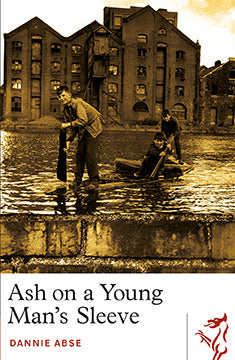"Mr Abse writes beautifully and tenderly of the things he has seen and felt." The Times.
Widely acclaimed for its warm humour, lyricism and honesty, as well as its accurate evocation of the thirties, Ash on a Young Man's Sleeve has become a sung-after classic. In this delightful autobiographical novel, Dannie Abse skilfully interweaves public and private themes, setting the fortunes of a Jewish family in Wales against the troubled backcloth of the times - unemployment, the rise of Hitler and Mussolini, and the Spanish Civil War.
Dannie Abse was born in Cardiff in 1923. He began his medical studies at the Welsh National School of Medicine and qualified as a doctor from Westminster Hospital, London in 1950. While still a student his first book of poems was published and his first play performed. Further poetry volumes followed over the decades, culminating in his New & Collected Poems (2003) and Running Late (2006). His first novel, Ash on a Young Man’s Sleeve, appeared in 1954 and last, the Booker long-listed The Strange Case of Dr Simmonds and Dr Glas in 2002. His three prize-winning plays were collected in The View from Row G (1990) and his autobiography, Goodbye, Twentieth Century, was published in 2001. He was president of the Welsh Academi and a Fellow of the Royal Society of Literature. He died in 2014.
Review by Gwyneth Lewis
One might expect a poet’s prose to be full of flowery descriptions and metaphors, but not if that writer is Dannie Abse. His modus operandi is both tougher and more human. He is a rare example of a person who has made a commitment to the wellbeing of body and spirit simultaneously through the arts and sciences. Dannie, the young protagonist of Ash on a Young Man’s Sleeve, feels attracted by two kinds of work. In conversation with his friend, Keith, he reflects on this: ‘I’ve been thinking,’ I said. ‘What?’ he asked. ‘I think I’ll become a doctor after all.’ ‘Thought you were going to be a poet and an assassin,’ Keith reminded me. ‘No,’ I said. ‘One must choose the difficult path. It’s too easy to be a poet, or to knock off a few heads of Europe. Too easy. I’ll take the difficult path. Anyway, I believe in Democracy.’ ‘What’ll you be tomorrow?’ smiled Keith. ‘Dunno,’ I said.

